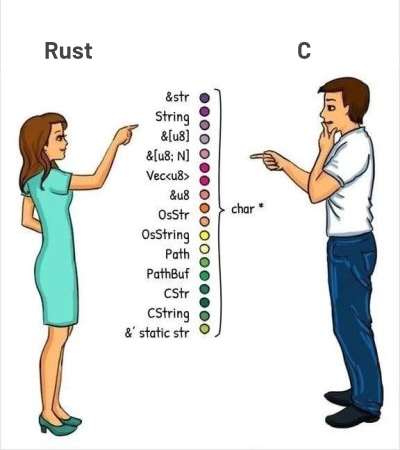Personally, I have nothing against the emergence of new programming languages. This is cool:
- the industry does not stand still
- competition allows existing languages to develop and borrow features from new ones
- developers have the opportunity to learn new things while avoiding burnout
- there is a choice for beginners
- there is a choice for specific tasks
But why do most people dislike the C language so much? But it remains the fastest among high-level languages. Who benefits from C being suppressed and attempts being made to replace him? I think there is only one answer - companies. Not developers. Developers are already reproducing the opinion imposed on them by the market. Under the influence of hype and the opinions of others, they form the idea that C is a useless language. And most importantly, oh my god, he’s unsafe. Memory usage. But you as a programmer are (and must be) responsible for the code you write, not a language. And the one way not to do bugs - not doing them.
Personally, I also like the Nim language. Its performance is comparable to C, but its syntax and elegance are more modern.
And in general, I’m not against new languages, it’s a matter of taste. But when you learn a language, write in it for a while, and then realize that you are burning out 10 times faster than before, you realize the cost of memory safety.
This is that cost:



yeah if there’s a popular “modern replacement for C” it’d be Go, similar procedural syntax with some functional features + great stdlib + static linking by default + easier concurrency + GC, but the new memory arenas feature looks like they’re open to change and it’s moving away from that dumbed down language for Google’s junior devs it used to be known as
Zig also seems interesting. I’m definitely a fan of what I’ve seen of their error handling. Intercompatibility with C (no FFI required) also sounds tempting, especially if I already had a legacy C codebase I wanted to migrate.